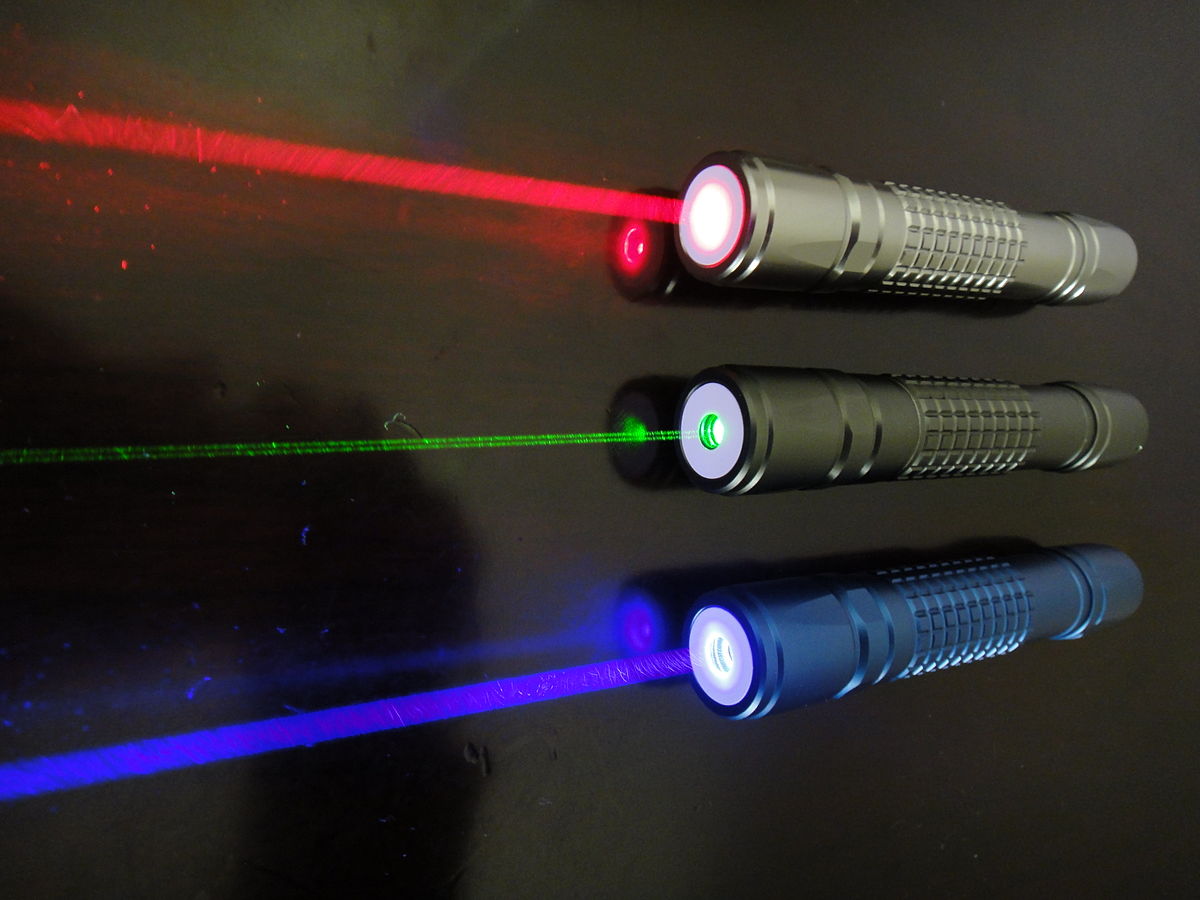
Last year, pilots over Colorado reported more than 300 “laser strike” incidents — someone on the ground shining a laser pointer at an airplane or helicopter.
A laser beam can ruin a pilot’s night vision or even temporarily blind them, especially as the windshield scatters the light around the cockpit. It’s especially dangerous when the aircraft is closest to the ground — making it an easier target just as the pilots are trying to land or take off.
The perpetrators are committing a federal felony, but very few people are caught, with authorities identifying a suspect in only about 1 percent of cases, according to legislative analysts.
It’s hard enough to find a single laser pointer in the night, but law enforcement also faces a legal problem: While there is a federal law against the practice, the state hasn’t considered it a crime, until now. That means local law agencies had little power to prosecute laser-wielding scoundrels.
“Our local law enforcement are pretty much limited to confiscating the laser pointer and referring the matter to the FBI. FBI resources are stretched very thin in this state, and especially where aviation crimes occur,” said Rep. Matt Soper, a Republican, in a committee hearing this year.
Soper hopes future incidents will be handled very differently. He co-sponsored a new law, SB23-95, to make laser strikes a state felony, too. Starting on July 1, local police and prosecutors can now take these cases to court on their own.
There are relatively few restrictions on laser sales in the U.S., and it’s “extremely easy” to get a laser that is thousands of times more powerful than your typical classroom aid, the BBC reported. Those juiced up lasers — including some available on Amazon — are powerful enough to burn paper and damage retinas. But even a low-power 5 mW pointer “can easily cause glare and distract pilots,” at lower altitudes, the International Federation of Air Line Pilots’ Associations reported.
The number of laser strikes reported in Colorado has generally increased since 2010, reflecting a national trend. Most have happened around Denver International Airport, but more than 100 have also been reported in Colorado Springs, Longmont and Pueblo in the past 13 years. Scattered reports have also come from all corners of the state, from Akron to Kremmling.
Laser strikes don’t just affect commercial airliners, either. Lawmakers heard about cases where air ambulances and search-and-rescue helicopters were targeted. At a committee hearing, Kathleen Mayer, program director of Flight for Life Colorado, described a 2017 attack on one of the organization’s transport airplanes as it approached its home airport in Centennial. The pilot was temporarily blinded and a medical crew member was left with permanent vision loss.
“He learned that his vision had been permanently damaged by a burn to his retina that destroyed a full 30% of his vision,” Mayer said.
“Shortly after that, he left our program — long before he was ready to — because he was unable to see the ventilator settings or the monitor readings across the back of that airplane or the helicopter.”
Sen. Joann Ginal, a Democratic cosponsor, said she initially assumed incidents were usually “kids just fooling around.” But she learned that adults were behind most of the cases where a suspect could be identified.
“There’s just people who do it maliciously, or they think it’s a joke,” she said. Experts also say that some people may not realize the harm they’re doing, since lasers can appear to their users to reach only a short distance into the sky, even as they’re actually going much further.
The new law creates a Class 6 state felony, punishable by up to $100,000 in fines and 18 months imprisonment. Federal law allows five years imprisonment, and the Federal Aviation Administration has fined people up to $30,800 for repeat offenses.
“To me, misdemeanors are just a slap on the hand, and I don’t believe people take misdemeanors serious enough, and so I was really glad that we got this to be a class 6 felony,” Ginal said.
The measure passed without opposition in the Senate, but it drew a handful of “no” votes from progressive Democrats in the House, who generally argue that tougher criminal penalties can derail people’s lives while doing little to stop crime. Some lawmakers moved amendments, unsuccessfully, to offer a lighter misdemeanor charge and exemptions for people with less powerful laser devices, among others.
Democratic Rep. Elisabeth Epps said the state should focus on education and prevention, not punishment.
“How does this keep our patients and our pilots and our paramedics safer? The response was that, ‘Well, it's a social message,’” she said at a committee hearing. “And when we're weighing the consequences of creating a new felony, bringing someone into that felonization net without affirming the option of a misdemeanor, that is the thing that pushes us toward the next $2 billion [Department of Corrections] budget, and that isn't investing in that which keeps us safe.”
Representatives Kyle Brown, Javier Mabrey, Chris deGruy Kennedy and Lorena Garcia, all Democrats, also voted against the measure.
Soper and Ginal cosponsored the new state law with Democratic Rep. Lindsey Daugherty and Republican Sen. Bob Gardner.
Both federal law and the new state law include exemptions for people sending emergency distress signals, as well as authorized researchers and people in training.









